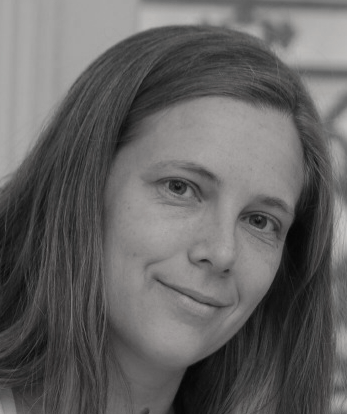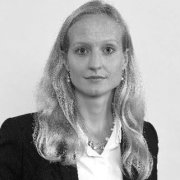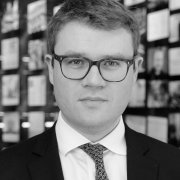Past Event
How to speed up sustainable finance?
Which steps are needed to really change current practices and speed up sustainable finance?
VIDEO & AUDIO RECORDINGS
SUMMARY
At this event, Bruegel fellow Dirk Schoenmaker unveiled his last publication assessing the European Commission Action Plan for sustainable finance. Together with Sophie Barbier from Caisse des dépôts, Alain Deckers from DG FISMA of the European Commission, Edmund Lakin from HSBC Cathrine de Coninck-Lopez from Invesco and MEP Molly Scott Cato they discussed the steps needed to speed up the rise of sustainable finance.
According to Dirk Schoenmaker, there is two main issues that need to be addressed: (1) whether there is a need to have an official taxonomy to determine if an investment is sustainable or if it should be left to the market, and (2) whether sustainable finance should continue on relying on ESG rating. Indeed, the proportion of sustainable assets to total assets under management is now higher that 50% in Europe, and corporate and financial investors are more and more keen to engage in sustainable finance, mostly because they anticipate more regulation. At the level of the all economy, there is a clear need to go beyond the mere maximalisation of stakeholder’s value and to bring value for all stakeholders, including environmental and socio-economic effect of the investment. In that context, the Action Plan of the European Commission proposed, among other things, to use a taxonomy to classify the investments according to their sustainability. In practice, this approach is likely to be too administrative and vulnerable to lobbying. On the market side, ESG ratings suffer from the same ills that all agency credit ratings, therefore it is not sure that they constitute an appropriate alternative solution.
Alan Deckers reckons the desire of the European Commission to take the lead in this area, and the fact that there is no silver bullet: financial instruments, legislative and non-legislative measure have to be mobilised all together. As an example, today the Commission adopted its new strategy on climate change, and it clearly sets up that the Commission need to mobilise a wide range of instruments. He defended the taxonomy approach used by the Commission, recalling it is only one of the tools proposed by the Commission, as it has drawbacks, as demonstrated by Dirk Schoenmaker.
MEP Molly Scott Cato stated that she welcomes the involvement of private company into sustainable finance, but reckons that public money should also be mobilised. The aim is to shift the European economy towards a more sustainable way. She particularly supported the disclosure proposal, that aims to entitle the consumer to know where his money is invested. She is convinced that the disclosure of this information will shift investment towards more sustainable areas. As a conclusion, she underlined the importance of public and private cooperation to achieve results in sustainable finance.
Cathrine de Coninck-Lopez, from Invesco, commented on the ESG initiative from the Commission which she welcomes as a professional in the field of ESG investment. As investor, Invesco has developed his own internal procedures and sector level frameworks (ESG indicators) to assess whether an investment is sustainable or not. Therefore, the market in the ESG area already uses its own taxonomy. However, she explained that some proposals are not technically possible, such as the disclosure proposal.
Edmund Lakin, from HSBC, discussed the issue from the point of view of the banking sector. He agrees that an incentive-based policy is needed to shift the financial system towards more sustainability. However, this shift is a transition, and time is needed for the implementation, all the more since many various topics are included in the definition of sustainable finance, from environment to risk-management processes.
Finally, Sophie Barbier tackled the issue from a different point of view: she underlined the fact that sustainable finance is linked to long-term investment. For instance, CDC has developed ESG methods because they were engaged in long-term investment. Institutional investors are thus key players that can be the drivers of the shift towards a more sustainable finance.
Event notes by Antoine Mathieu Collin
EVENT MATERIALS
Schedule
12:30-13:00
Check-in and lunch
13:00-13:15
Presentation
Dirk Schoenmaker, Non-Resident fellow
13:15-14:15
Discussion
Chair: Dirk Schoenmaker, Non-Resident fellow
Sophie Barbier, Director of European affairs, Caisse des Dépôts et Consignations
Alain Deckers, Head of unit, European Commission, DG FISMA
Edmund Lakin, Deputy Head of Policy Global Markets and Sustainable Investment, HSBC
Molly Scott Cato, Member, European Parliament
Cathrine de Coninck-Lopez, Head of ESG, Invesco
14:15-14:30
Q&A
14:30
End
Speakers

Sophie Barbier
Director of European affairs, Caisse des Dépôts et Consignations

Molly Scott Cato
Member, European Parliament

Cathrine de Coninck-Lopez
Head of ESG, Invesco

Alain Deckers
Head of unit, European Commission, DG FISMA

Edmund Lakin
Deputy Head of Policy Global Markets and Sustainable Investment, HSBC

Dirk Schoenmaker
Non-Resident fellow
Location & Contact
Matilda Sevon
[email protected]

